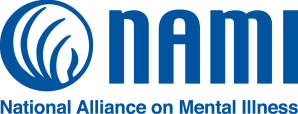Dialing into Mental Health: One Year of the 988 Suicide & Crisis Lifeline
July marks the one-year anniversary of the 988 Suicide & Crisis Lifeline, when the three-digit number became available to everyone in the U.S. to call, text, or chat to access a national network of local and state-funded crisis centers. Available 24 hours a day, 988 provides free and confidential support with trained crisis counselors, a lifesaving alternative to calling 911 when a person is in a mental health or suicide crisis.
Usage is on the rise, as 988 received more than 4,000,000 contacts since last July. Still, only a small fraction of adults in the U.S. are familiar with 988 a year after launch—far less than the 23% of U.S. adults who experienced mental illness in 2021, or the 14.1 million Americans, or 1 in 20 people, who experienced serious mental illness. According to the National Alliance on Mental Illness, more awareness is needed about 988 and the work ahead to provide a mental health response for every mental health crisis.
More help is on the way as the Department of Health and Human Services recently announced more than $200 million in new funding to build local capacity for 988 and related crisis services. Where does the national rollout of 988 and crisis services stand with this latest round of funding? And how can we address the greatest mental health care access challenges and gaps still present today?
The Hill will bring together lawmakers, mental health experts, and advocates to mark the milestone anniversary of the 988 Suicide & Crisis Lifeline and discuss what still needs to be done to ensure everyone can access the help they need, just a phone call away.
LOCATION
National Press Club Holeman Lounge, 529 14th St. NW, 13th Floor, Washington, DC 20045
DATE & TIME
Thursday, July 13, 2023
8:00 AM – Breakfast & Networking
8:30 AM – Programming Begins
10:00 AM – Programming Concludes
Speakers:
- Xavier Becerra, Secretary, Department of Health & Human Services (appearing virtually)
- Adrienne Breidenstine, Vice President of Policy & Communications, Behavioral Health System Baltimore
- Sen. Catherine Cortez Masto (D-NV), Co-Sponsor, Behavioral Health Crisis Services Expansion Act
- Tina Orwall, Washington State Representative, 33rd District; Speaker Pro Tempore, Washington State House of Representatives
- Rep. Chris Stewart (R-UT), Co-Chair, Mental Health Caucus
- Laurel Stine, Executive Vice President & Chief Policy Officer, American Foundation for Suicide Prevention
- Hannah Wesolowski, Chief Advocacy Officer, NAMI
Sponsor Perspective:
- Paul Pazen, Chief of Police (Ret.), Denver Police Department
Moderator:
- Bob Cusack, Editor in Chief, The Hill
Join the conversation! Tweet us @TheHillEvents using #TheHillMentalHealth
SPONSOR:

July 16 marks one-year since 988 became available nationwide for anyone in the U.S. to contact during a mental health, substance use or suicide crisis. But there’s still more work ahead to ensure everyone has someone to talk to, someone to respond and a safe place to go. NAMI — America’s largest grassroots mental health organization — is leading the charge with policymakers so people receive the mental health crisis response they deserve. Learn more here.
*Editorial note: While it is generally our policy that sponsors of programs not participate in editorial programs, we feel these speakers are important to the national discussion of health equity and have made an exception in this case.










